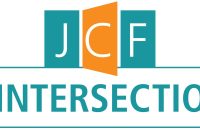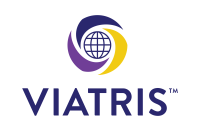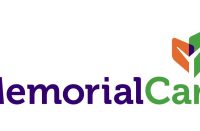Double-blind, randomized trial data show a clinically meaningful and statistically significant net reduction of 8.1 mmHg in 24-hour ambulatory systolic blood pressure at 6 months in treated vs. control patients
Very high (85%) response rate to therapy despite 81% of treated patients having isolated systolic hypertension (ISH), a more dangerous and difficult to treat form of hypertension
Primary safety endpoint achieved with no difference in major adverse cardiac events or other cardiac parameters between the treated and control groups at 6 months
NEW HOPE, Pa., Aug. 17, 2021 (GLOBE NEWSWIRE) — Orchestra BioMed™, Inc., (“Orchestra BioMed” or the “Company”), a biomedical innovation company focused on developing transformative therapeutic products for large unmet clinical needs in procedure-based medicine, today announced the publication of data from the double-blind, randomized MODERATO II study in the Journal of the American Heart Association (JAHA). The data demonstrated that BackBeat Cardiac Neuromodulation Therapy™ (CNT™), a programmable and adjustable bioelectronic therapy delivered via an active implantable cardiac pulse generator, significantly reduced 24-hour ambulatory systolic blood pressure (aSBP) in patients with persistent hypertension and a clinical indication for a pacemaker. The average age of the study population was 74 years, which is significantly older than patients generally enrolled in hypertension studies. There was also a higher prevalence of comorbid conditions in the study population and 81% of enrolled patients had isolated systolic hypertension (ISH), a more dangerous and difficult to treat form of hypertension that is predominant in older patients.
“We were very encouraged by the results of this double-blind, randomized study demonstrating meaningful and sustained reduction in aSBP out to six months in a very challenging hypertensive patient population,” said Karl-Heinz Kuck, M.D., Ph.D., director of cardiology at the Lans Medicum, Hamburg, Germany, and study principal investigator. “BackBeat CNT has a favorable risk benefit profile as the device is already required for rhythm management and MODERATO II data offers compelling preliminary evidence that this therapy may provide a safe and effective means to help patients with persistent hypertension and an indication for a pacemaker achieve target blood pressure levels and thereby reduce cardiovascular risk.”
MODERATO II was a European prospective, multi-center, double-blind study investigating the efficacy of BackBeat CNT™ in patients with persistent hypertension (aSBP ≥130 mmHg and office systolic blood pressure (oSBP) ≥140 mmHg) despite one or more anti-hypertensive medications and an indication for implantation or replacement of a dual-chamber pacemaker. Following a 30-day run-in period during which patients received only standard pacing along with anti-hypertensive medications, 47 patients who met follow-up screening criteria for daytime aSBP were randomized to BackBeat CNT (n=26) or control (n=21) groups. Prior to randomization, the mean aSBP for both groups was 136.3 mmHg and patients had been treated with, on average, over three prescribed anti-hypertensive drugs. Key MODERATO II data from the JAHA publication include:
- After six months, mean aSBP was reduced by 11.1 mmHg (p<0.001) in the BackBeat CNT group as compared to a reduction of 3.1 mmHg in the control group (p=0.17), for a net treatment effect of 8.1 mmHg (p=0.012).
- The treatment group saw a very high (85%) overall response rate, with approximately 54% of the BackBeat CNT-treated patients experiencing a >10 mmHg aSBP reduction at six months, which is associated with a clinically meaningful reduction in risk of heart attack and stroke.
- The BackBeat CNT group experienced a significantly greater reduction in oSBP compared to the control group, with a net treatment effect of 12.3 mmHg (p=0.02).
- There were no major adverse cardiac events (MACE) in the BackBeat CNT group, and three events in two patients in the control group.
- There were no significant differences in cardiac echo parameters between the BackBeat CNT and control groups.
- Diastolic blood pressure and heart rate did not change between the BackBeat CNT and control groups during the study period, a notable finding given the high rate of ISH in the study population and the challenge to reduce systolic blood pressure without reduction of diastolic blood pressure in these patients.
An editorial by two renowned physicians in the field of device-based hypertension treatment, Lucas Lauder, M.D. and Felix Mahfoud, M.D., was published along with the data. The editorial commended the study authors for conducting a randomized, sham-controlled, device-based hypertension trial and noted that “…although the baseline blood pressure was lower, the relative change in aSBP in the treatment group was larger than in other sham-controlled trials in device-based hypertension treatment.” The editorial further affirmed that MODERATO II data support BackBeat CNT as feasible and acceptably safe in the short term and noted that “…its efficacy in patients with isolated systolic hypertension, are to be highlighted.” The editorial can be accessed here.
Over 1.1 million pacemakers are implanted annually worldwide.1 Patients indicated for a pacemaker have a particularly high rate of elevated blood pressure with more than 70% of these patients suffering from hypertension.2 Based on data from the National Health and Nutrition Examination Survey (NHANES) III, it is estimated that the majority of hypertensive pacemaker patients suffer from ISH3, a particularly challenging form of hypertension to treat with no specific pharmaceutical therapy currently approved. Longer-term follow up results from the MODERATO II study presented at the American College of Cardiology conference in May 2021, but not included in JAHA publication, showed that BackBeat CNT reduced oSBP in treated ISH patients by an average of 16.4 mmHg after 18 months of treatment.
About BackBeat CNT™
BackBeat CNT, a flagship therapy of Orchestra BioMed, is a bioelectronic treatment designed to immediately, substantially, and persistently lower blood pressure (BP) while simultaneously modulating the Autonomic Nervous System (ANS). Orchestra BioMed’s CE Mark-approved Moderato® implantable pulse generator system delivers BackBeat CNT while also providing standard pacemaker functions. BackBeat CNT is designed to mimic the effects of multi-drug hypertension therapy by targeting preload, afterload and sympathetic tone. The initial target treatment population for BackBeat CNT is patients with uncontrolled hypertension who are also indicated for a pacemaker. BackBeat CNT has the potential to be integrated into any dual-chamber pacemaker system, making this therapy highly suitable for Orchestra BioMed’s risk-reward sharing strategy of pursuing commercialization through a strategic partnership.
About Orchestra BioMed™
Orchestra BioMed is a biomedical innovation company focused on developing transformative therapeutic products for large unmet needs in procedure-based medicine. The Company is led by a highly accomplished, multidisciplinary management team and board of directors with extensive experience in all phases of medical device development. Orchestra BioMed’s partnership-enabled business model focuses on forging strategic collaborations with leading medical device companies to drive successful global commercialization of products it develops. Orchestra BioMed was formed in 2018 by assembling a pipeline of multiple late-stage clinical product candidates originally developed by the Company’s founding team. The Company’s flagship product candidates are Virtue® Sirolimus AngioInfusion™ Balloon (SAB) for the treatment of artery disease, the leading cause of mortality, and BackBeat Cardiac Neuromodulation Therapy™ for the treatment of hypertension, the leading risk factor for death worldwide. Orchestra BioMed has a global strategic partnership with Terumo Corporation, one of the world’s largest medical device companies, for development and commercialization of Virtue SAB. Together, the companies plan to initiate a U.S. pivotal trial for the use of Virtue SAB in the treatment of coronary in-stent restenosis in 2021 which will be the first in a series of pivotal trials aimed at achieving regulatory approvals in multiple indications worldwide. The Company has additional product candidates in its pipeline and plans to thoughtfully expand its product pipeline in the future through acquisitions, strategic collaborations, licensing, and organic development.
Forward-Looking Statements
Some of the statements made herein constitute forward-looking statements. These statements relate to future financial and other performance or anticipated plans and are identified by words such as “may,” “will,” “should,” “expect,” “could,” “scheduled,” “plan,” “intend,” “anticipate,” “believe,” “estimate,” “potential,” “propose” and “continue” or negative variants of such terms. These and similar forward-looking statements discuss the Company’s future expectations and plans. The Company operates in a very competitive and rapidly changing environment. New risks emerge from time to time. Given these risks and uncertainties, the Company cautions against placing undue reliance on these forward-looking statements. These statements are only estimates of future performance. Actual performance or events may not meet such expectations or estimates and may, in fact, differ materially.
Although the Company believes that the expectations reflected in the forward-looking statements made herein are reasonable, the Company cannot and does not guarantee future results, levels of activity, performance, or achievements. Moreover, the Company does not assume any responsibility for the accuracy and completeness of such forward-looking statements in the future. The Company does not plan and, subject to applicable law, undertakes no obligation to update any of the forward-looking statements made herein.
Investor Contact:
Bob Yedid
LifeSci Advisors
646-597-6989
Bob@lifesciadvisors.com
Media Contact:
Gloria Gasaatura
LifeSci Communications
646-970-4688
ggasaatura@lifescicomms.com
1 BIS Research, 2017, Global Pacemaker and Implantable Cardioverter Defibrillators (ICDs) Market
2 Guha A, Xiang X, Haddad D, et al. Eleven-year trends of inpatient pacemaker implantation in patients diagnosed with sick sinus syndrome. J Cardiovasc Electrophysiol. 2017;28(8):933–943. doi:10.1111/jce.13248
3 SS Franklin et all. Hypertension. 2001 Mar;37(3):869-74







